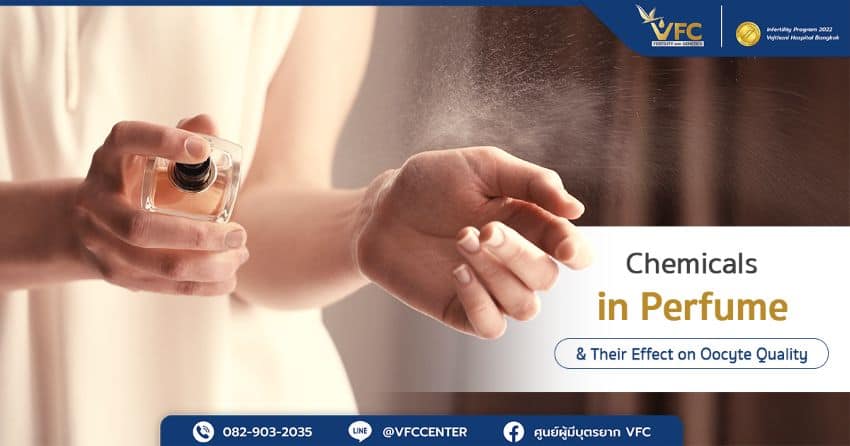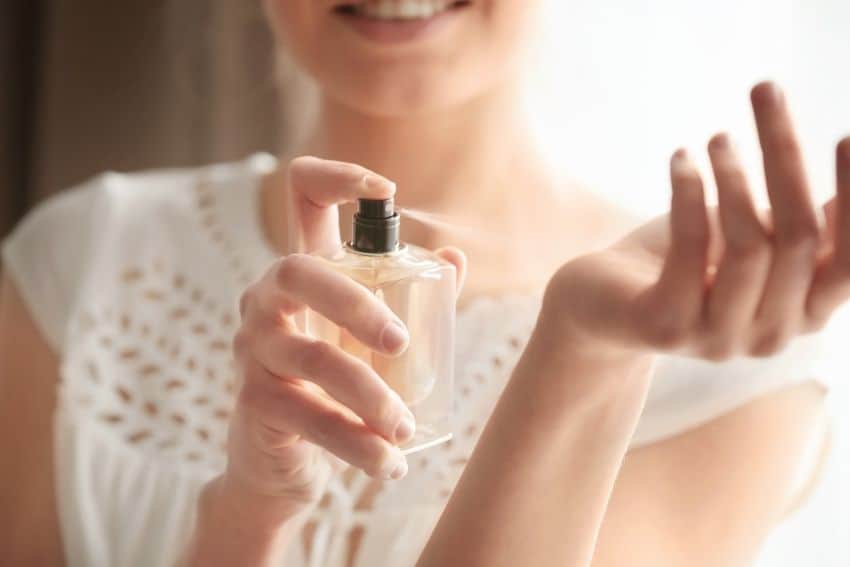
Few people realize that something as simple as wearing perfume could negatively impact fertility treatment outcomes. Research has shown that certain chemicals in perfume, especially volatile compounds like phthalates and aldehydes can interfere with hormone balance and damage oocytes during IVF. For couples facing difficulty conceiving, avoiding scented products becomes a critical yet often overlooked step. That’s why every IVF fertility clinic with a high success rate, including VFC, strictly prohibits perfume and fragranced items in embryo culture areas to help protect oocyte quality and maximize pregnancy success.
Many women today choose oocyte retrieval and embryo transfer to increase their chances of pregnancy, especially couples who are having difficulty conceiving. A factor that many people might overlook is the small, everyday use of scented products, which can impact the quality of oocytes and embryos. This is because certain chemicals in perfume can interfere with the hormonal system and the reproductive process.
Why Do Perfumes Affect Oocyte Retrieval and Embryo Transfer?
Perfumes and other fragranced products contain volatile organic compounds (VOCs) such as phthalates, aldehydes, and solvents. When sprayed or applied to the body, these substances evaporate into the air and can enter the lab where embryos are cultured, even in small amounts. This is considered a risk factor for infertility treatment, as it can affect the following:
- Reduced Oocyte Quality: VOCs can disrupt the lab environment, preventing some oocytes from developing fully.
- Disrupted Embryo Growth: Embryos are in a phase of rapid cell division, making them sensitive to chemicals. Even minimal exposure to VOCs can reduce the chances of implantation.
- Decreased IVF Success Rate: Fertility clinics worldwide have strict rules against using perfumes to prevent negative effects on embryo culture.
Lab Measures
To ensure the highest efficiency for oocyte retrieval and embryo transfer, fertility clinic laboratories must be Clean Rooms with strict environmental controls. The labs also have advanced air filtration systems such as HEPA and carbon filters, to prevent contamination and keep the air clean. All scented products are strictly prohibited from this area to prevent any risk of harm to the oocytes and embryos, thereby maximizing the chances of a successful infertility treatment.
What to Do to Increase Your Chances of Success
Preparing for treatment by following the advice of doctors and medical staff can greatly increase your chances of a successful pregnancy.
Avoid Perfumes and Scented Products
When preparing for IVF treatment for difficulty conceiving, you should avoid all scented products to prevent exposure to chemicals in perfume. This includes lotions, body creams, hairspray, perfumes, fabric softeners, and even air fresheners. These products often contain volatile organic compounds (VOCs) that can affect the quality of oocytes and embryos. Some chemicals, such as phthalates and aldehydes, can spread through the air and contaminate the sensitive environment of the embryo culture lab. To reduce this risk, you should choose products that are “fragrance-free” or “unscented” for maximum safety.
Maintain Body Hygiene and Wear Clean Clothes
Keeping your body clean is important to prevent potential infections. Bathing with gentle, unscented soap or cleanser can help reduce the risk of unnecessary chemical contamination. Additionally, wearing clean clothes that are not heavily scented is a necessary practice, as odors from reused clothes or strong-smelling fabric softeners can also carry VOCs into the lab. Following these recommendations helps create the most suitable environment for the oocytes and embryos, increasing the chances of a successful pregnancy.

Increase Your Chances of Pregnancy with the Right Nutrients
Taking the necessary vitamins and minerals is important for preparing your body for oocyte retrieval and embryo transfer, as these nutrients help enhance oocyte quality and overall health.
- Vitamin D: Plays a key role in producing hormones essential for pregnancy and helps maintain healthy oocytes.
- Folic Acid: Helps reduce the risk of genetic abnormalities and is necessary for creating new cells.
- Vitamin E: Acts as an antioxidant that helps protect oocytes from damage and enhances the efficient function of the reproductive system.
- Vitamin C: Helps strengthen the body’s immune system, making it ready for treatment.
For women who are planning to conceive and are concerned about factors affecting oocyte retrieval and embryo transfer, such as chemicals in perfume or other health issues, consulting with our specialists is crucial to prepare for pregnancy. If you’re looking for an IVF fertility clinic that can provide expert care and guidance, we recommend VFC – V Fertility Center. Our team of fertility specialists is ready to help increase your chances of a successful pregnancy.
Article by Dr. Nannapat Parosiyanont
For inquiries or to schedule an appointment, contact us at:
VFC Center – V-Fertility Center
Hotline: 082-903-2035
LINE Official: @vfccenter

The team of specialists in obstetrics and gynecology and reproductive medicine





No Comments
Sorry, the comment form is closed at this time.